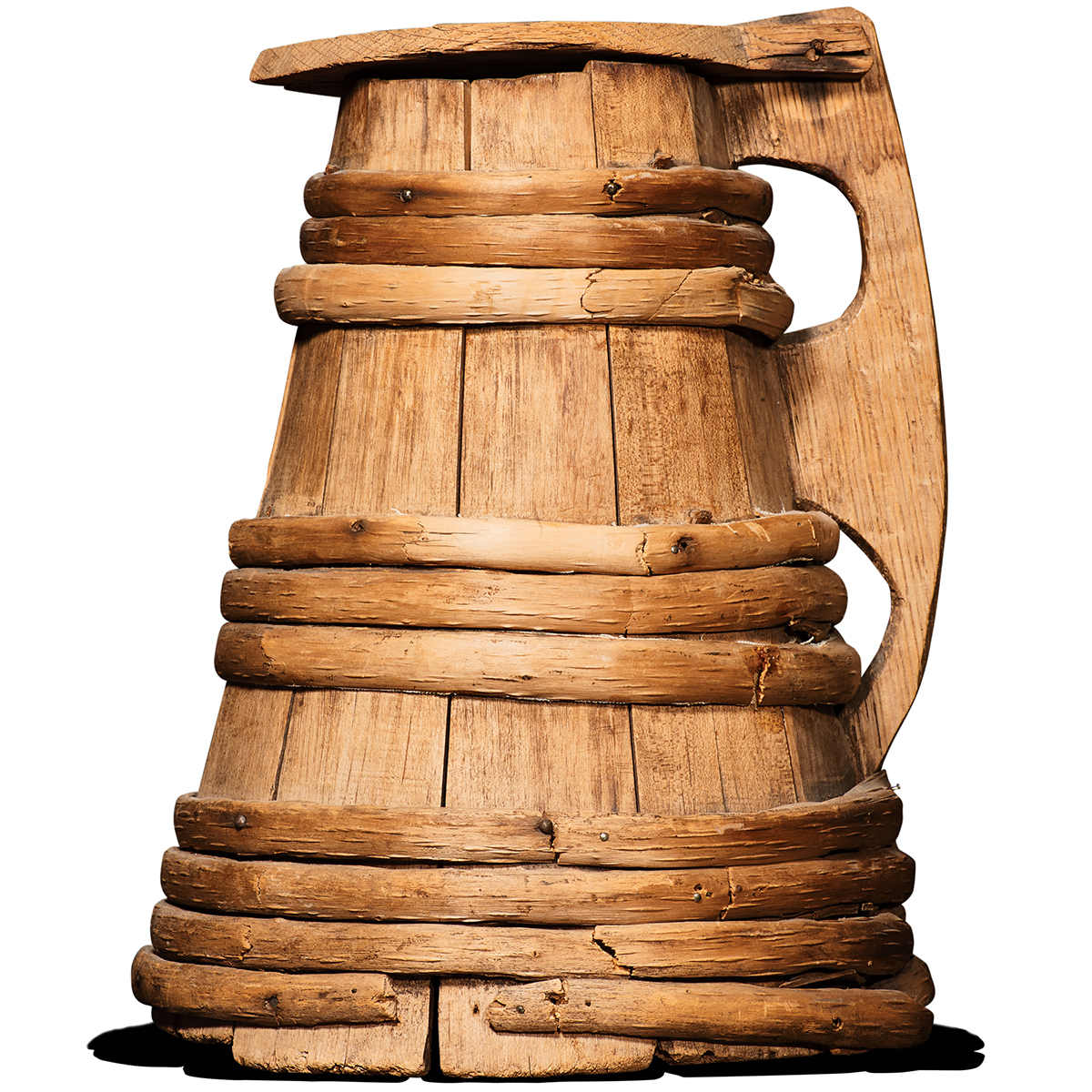See This Pilgrim Beer Tankard in Plymouth

Photograph by Tim Kennedy
This Thanksgiving, pay tribute to our Puritanical ancestors by raising a tankard of ale. Far from being teetotalers, the European separatists depended on beer as a key source of nourishment at a time when potable water could be hard to come by. Even kids would start the day by downing a few boozy ounces with breakfast. So important was beer to these early colonists, in fact, that their frenzied decision to park the Mayflower at Plymouth Rock in 1620 was partly driven by their diminishing supply of beer. One of the first crops the settlers attempted to grow was barley, according to Donna Curtin, executive director of Pilgrim Hall Museum. When that didn’t pan out, they turned to corn in hopes of concocting the New World’s first microbrew.
It’s no wonder, then, that Mayflower passenger Peter Browne packed the tankard featured here in his luggage before making the transatlantic voyage. Dating to the early 17th century, it was likely manufactured in the Baltics before ending up in the possession of Browne, who hailed from Surrey, England. After Browne died in 1633, his prized drinking vessel remained intact as it passed from generation to generation.
Did the God-fearing Pilgrims’ love of beer present any spiritual quandaries? Not at all. “They did not associate any wrong doing with the consumption of alcoholic beverages in daily life,” Curtin notes. “What was wrong was excessive drinking.” Cheers to that.
Where to See It: Pilgrim Hall Museum, in Plymouth


